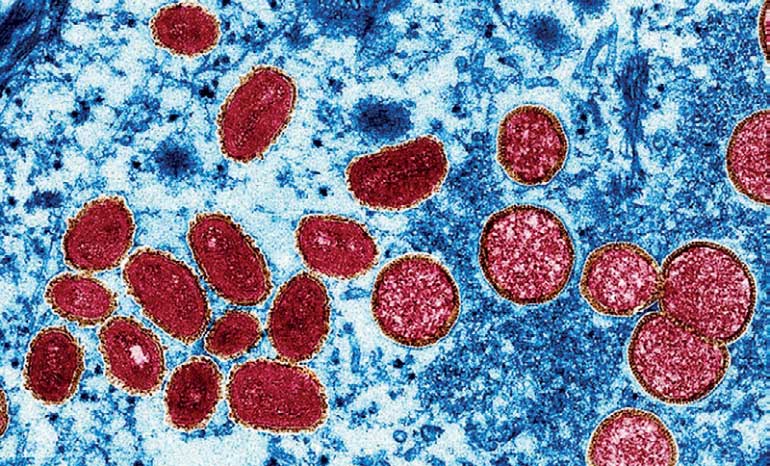Tuesday Feb 17, 2026
Tuesday Feb 17, 2026
Tuesday, 26 July 2022 01:59 - - {{hitsCtrl.values.hits}}

By Randima Attygalle
|
WHO Director General’s Envoy for South East Asia Dr. Palitha Abeykoon
|
Health experts yesterday called for close surveillance to prevent entry and spread of monkeypox in Sri Lanka.
“While it is possible that Sri Lanka may not be facing an immediate threat, with patients appearing in India and in Thailand, the health sector has to be extremely alert to the possibility and maintain adequate surveillance and provide correct community education,” WHO Director General’s Envoy for South East Asia Dr. Palitha Abeykoon told the Daily FT.
“What is most important right now is that we raise awareness about monkeypox among people who are most at risk of getting infected and provide advice on how to limit further spread between people. It is also important that public health workers be able to identify, diagnose and care for patients. Actions need to be taken to provide medical care to those affected and establish public health interventions to limit further spread. It is essential that no one stigmatises anyone who is affected by this event because anyone can get monkeypox and stigma can undermine control efforts.”
The growing monkeypox outbreak has now spread across 75 countries with more than 16,000 reported cases and the World Health Organisation (WHO) has declared the virus a public health emergency of international concern.
WHO Director-General Dr. Tedros Ghebreyesus in a press statement on 23 July, following International Health Regulations (IHR) Emergency Committee regarding the multi-country outbreak of monkeypox noted that the outbreak has spread around the world rapidly through new modes of transmission, ‘about which we understand too little’. Men who have sex with men, especially those with multiple sexual partners, according to the statement issued by the WHO DG are at the highest risk of infection right now.
Children can also catch monkeypox if they have close contact with someone who has symptoms. Data from previously affected countries show that children are typically more prone to severe disease than adolescents and adults. There has been a small number of children with monkeypox in the current outbreak.
Monkeypox is a viral zoonotic disease that occurs primarily in tropical rainforest areas of central and West Africa and is occasionally exported to other regions. The disease is called such because it was first identified in 1958 among colonies of monkeys kept for research. Human monkeypox was first identified in 1970 in Congo in a nine-month-old boy.
Monkeypox is usually a self-limiting disease with the symptoms lasting from two to four weeks. Severe cases can also occur and in recent times, according to WHO data about 3-6% of those who contacted the disease have died. It is transmitted to humans through close contact with an infected person or animal, or with material contaminated with the virus. The virus is transmitted from one person to another by close contact with open wounds and similar lesions, body fluids, respiratory droplets and contaminated materials such as bedding.
The clinical presentation of monkeypox resembles that of smallpox, a virus in the same family, which was declared eradicated worldwide in 1980. Monkeypox seems less contagious than smallpox and causes less severe illness. The disease typically is seen to present clinically with fever, rash and swollen lymph nodes and may lead to a range of medical complications. Studies are underway in affected countries to best determine how people are being exposed to monkeypox.
People with monkeypox should follow the advice of their healthcare provider. Symptoms, as Dr. Abeykoon, explains, normally resolve on their own without the need for treatment. “If needed, medication for pain (analgesics) and fever (antipyretics) can be used to relieve some symptoms. It is important for anyone with monkeypox to isolate himself/herself and drink plenty of liquids and stay hydrated, eat well, and get enough rest and sleep,” he says.
An antiviral, which was developed to treat smallpox was approved in January this year for the treatment of monkeypox. “But our experience with these medicines in the context of monkeypox is very limited and still experimental. Consulting a healthcare worker yet remains the best course,” maintains Dr. Abeykoon.
Those in older age groups who have been vaccinated against smallpox, until about 1980 in Sri Lanka, may have antibodies which might be protective but more information is needed on this, the WHO consultant says further. “Our current data on the effectiveness of newer smallpox/monkeypox vaccines in the prevention of monkeypox in clinical practice and in field settings is limited. We need to find ways of generating data quickly from diverse settings to be better prepared.”